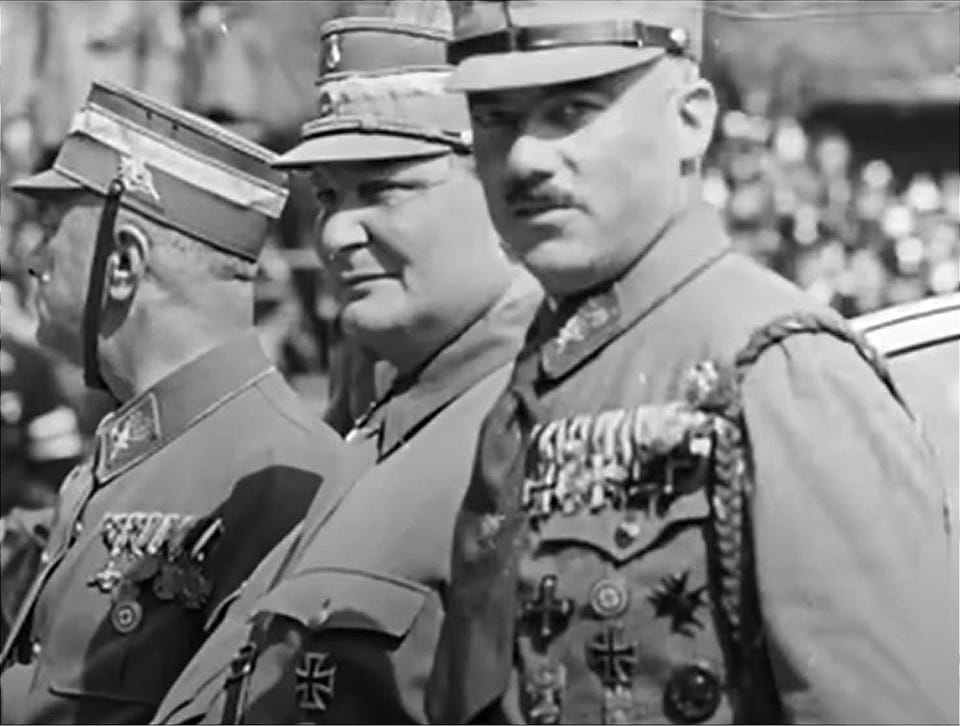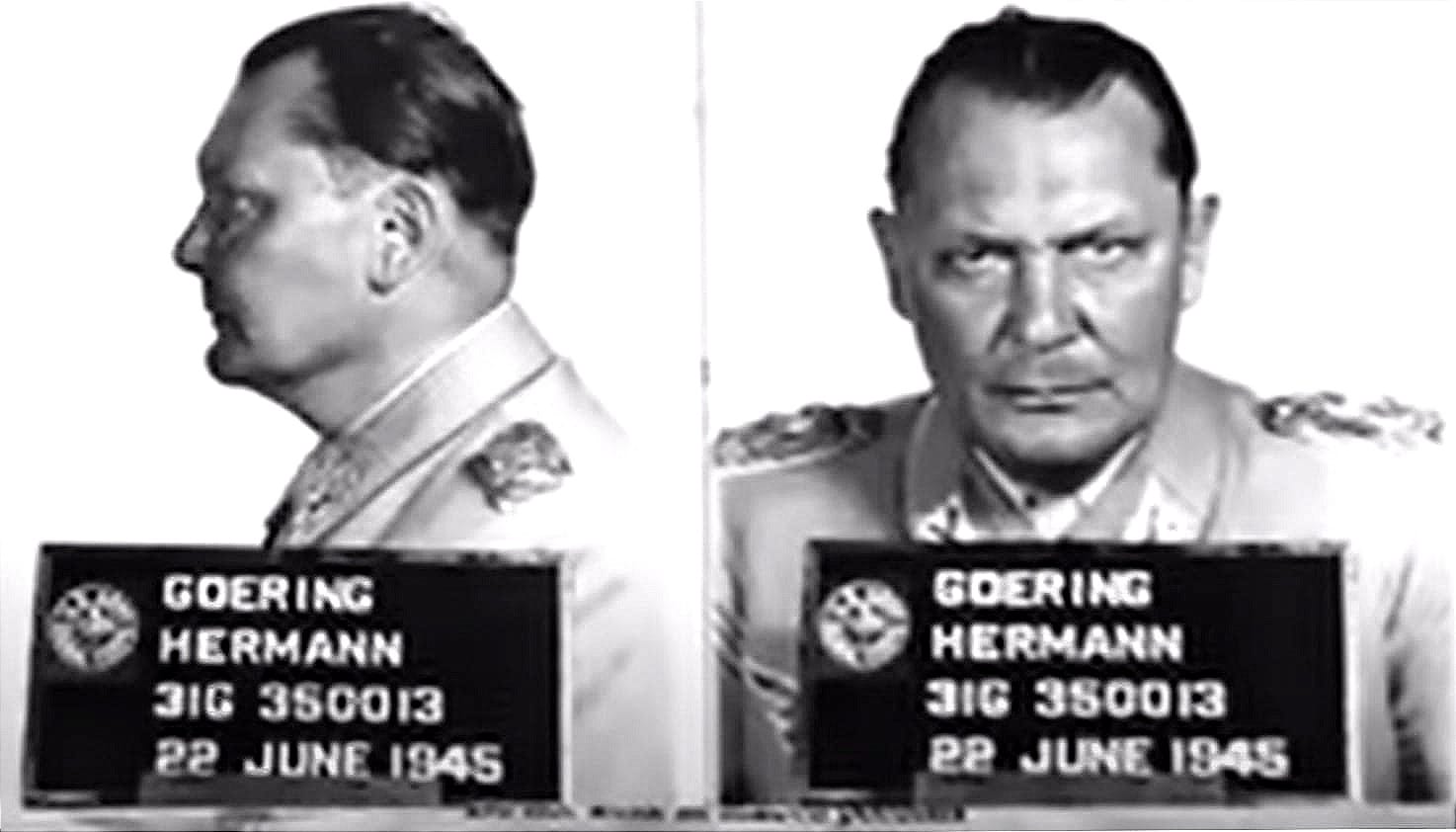Freedom and Forgetfulness

The shadow of a former time remains, a glance from gray corners we might prefer to forget. Although the papal crosses bequeathed as honors are gone, and new servants of the realm have risen, the face above has survived to meet our gaze.
Were history an ongoing march of progress, offering automatic advancement from one epoch to the next, freedom might be viewed as an entitlement. But such is not the case. In the embrace of forgetfulness, where entertainment is a priority, and the habits of excess are never questioned, freedom erodes and becomes a shadow of its former self.
Indeed, the mechanisms of forgetfulness are subtle but persistent, and their operations are essential to fathom.
Perhaps the first thing to remember is the most relevant here; the world powers learn much in the face of catastrophe, as they orchestrate solutions, negotiate treaties, and oversee the multitudes from one generation to the next. It seems that the precursor to manufacturing consent is, more often than not, manufacturing crises as prescribed by the Hegelian Dialectic--thesis, antithesis, solution. Or, more directly, the powers of the moment create the problem, control the public's perception of it, and impose their draconian solutions, one war and one wildfire at a time. Then, over decades--or even centuries--the fruit of a much larger agenda can ripen, its odor (which might have otherwise been repugnant to reasonable people) becoming sweet in comparison to the crises at hand. Trauma brings about a condition of forgetfulness, thus curtailing free thought and the freedom that comes from living with opportunities. All to what end? We consider how the progress of historical events is guided and shaped for a purpose, for the management of populations. And what does an ongoing war bring to the world?
Eventually, people will grow weary and compliant, receiving the basic necessities of life with desperate gratitude, caring nothing for the freedom and dignity that vanished long ago. Herein lies the substance of "revolutionary" change.
It's worth noting that the emblem of the British Fabian Society, well-known for the globalist aspirations of its members, is a wolf in sheep's clothing. However, they occasionally favor the depiction of a tortoise, implying that slow and deliberate movements are often the most effective. And what else might we consider regarding this topic?
Persuasion and the Management of Democracy
The American people don't believe anything until they've seen it on television. (Attributed to President Richard M. Nixon)
In no small measure, our predictable nature can be studied by propagandists and used against us, making it appear that history repeats itself by some immutable law of existence. Edward Bernays, nephew of Sigmund Freud, understood this well. Regarded as the father of corporate marketing (privatized propaganda) he found ways to sell cigarettes to pearl-clutching debutants, inspiring generations of young women to embrace nicotine. He begins Propaganda, his most famous book (and a noteworthy example of applied psychology) with a telling statement:
THE conscious and intelligent manipulation of the organized habits and opinions of the masses is an important element in democratic society. Those who manipulate this unseen mechanism of society constitute an invisible government which is the true ruling power of our country. (1)
By now, most of us realize that there are numerous unseen mechanisms of government at work, fascist to the core, which cause public administration and private wealth to mingle in unwholesome ways. In the time of Bernays, this form of governance could still masquerade as something positive, a modern platform for Plato's philosopher king. In Propaganda, he goes on to reiterate that a very small number of people manipulate the daily lives of many, which is necessary for the management of society--according to him. Walter Lippmann, journalist and contemporary of Bernays, offered a more veiled narrative, although he asserted a similar point of view. With regard to rule by the few over the many he stated:
Those who believed in class government could fairly claim that in the court of a king, or in the country houses of the gentry, men did know each other's characters, and as long as the rest of mankind was passive, the only characters one needed to know, were the characters of men in the ruling class. (2)
Consider the magnitude of this brief statement and the image it conveys, of "passive" multitudes who have no defining attributes, no individuality or purpose beyond their service to unseen powers--those who gather in secret places knowing one another, and the full weight of their intentions, their "character."
Now, we think back on the image above, recalling that servants of the ruling class are culled from "passive" farmers, laborers, and struggling merchants and imbued with powers from above--decorated with fancy uniforms and medals for their obedience. It's a subject worth considering as history continues to unfold, one ragged edge at a time.
Our reflection has led us to regard the unseen mechanisms of society, albeit from a broad perspective, as they pertain to the foundations of class government--Plato's Republic in modified form or, in modern times, rule by the wealthy "elite." In short, if we cherish freedom, forgetfulness of tyranny and its various methods (the true character of an unseen ruling class) must be dispelled. We need to remember.
As for the shadow of history pictured above, we return for a final thought.
Although the SA members flanking Hermann Göring in the photo were assassinated, eliminated by Hitler during a political purge, the famed aviator endured throughout the Second World War and rose to become the Supreme Commander of the German Airforce (Oberbefehlshaber der Luftwaffe). In addition to his numerous medals, as well as the personal fortune he displayed often and quite proudly, Hermann Göring enjoyed his status as second most senior member of the Nazi party--until being arrested for treason and stripped of his honors by Hitler. Despite the glory days of military parades, and the luxury of those splendid Hugo Boss uniforms, the end came.
Most scholars believe that Göring committed suicide shortly before his scheduled execution date, preferring cyanide in private to the public spectacle of hanging.
Yes, even the wealthiest tyrants are eventually brought to justice.

Works Cited:
(1) Bernays, Edward L. Propaganda (City of publication not available: Horace Liveright Inc.) 1928 (p. 9).
(2) Lippmann, Walter. Public Opinion (New York: The Macmillan Company) 1960 (p. 259).